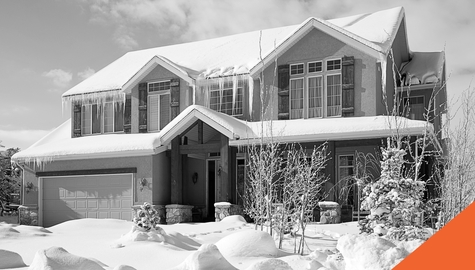How to Save on Home Insurance
Wednesday, 28 August 2024
Your home is your most significant investment, so finding the proper protection for it is essential. Thankfully, that protection doesn’t have to break the bank! While it’s true that the cost of home insurance in Canada has been on the rise, there are still some tried and tested strategies to get the affordable home insurance coverage you deserve. Whether you’re a first-time homeowner or have been insuring your property for years, there are several strategies to help you save on home insurance in Canada.
Shop Around and Compare Quotes
Just like any other major purchase, it pays to shop around. Insurance rates can vary significantly between providers, so take the time to get multiple quotes. At BIG, we make this part of the process easy, as your home insurance broker will do all the work for you and compare quotes from our network of insurance providers to get you the best possible rate.
Bundle Your Policies
One of the most straightforward strategies for saving on home insurance is to bundle it with other insurance policies, such as auto insurance. Many insurance companies in Canada provide attractive multi-policy discounts that can significantly reduce your overall premiums.
By consolidating your insurance needs with a single provider, not only do you benefit from lower rates, but you also enjoy the convenience of managing all your policies in one place.
Increase Your Deductible
Another effective way to lower your home insurance premium is by increasing your deductible, which is the amount you pay out-of-pocket before your insurance coverage begins to apply. On average, a home insurance deductible in Canada is approximately $1,000. Opting for a higher deductible can lead to significant savings on your annual premium because it reduces the insurer's risk.
However, it's essential to carefully consider how much you can realistically afford to pay if you need to make a claim. A higher deductible can be a double-edged sword—while it lowers your premium, it also means you'll need to have more funds readily available in the event of a loss.
For example, if you raise your deductible from $500 to $1,000, you could see a noticeable drop in your premium, but you should ensure that the extra $500 is accessible if an unexpected event occurs.
Secure Your Home
Investing in home security features is a proactive way to protect your property and reduce your insurance costs. Installing a monitored security system can lower your premiums. Most insurance companies take 2 to 5 percent off your premiums if you’ve got a home security system, but some will offer even more!
Maintain a Good Credit Score
In Canada, your credit score can impact your home insurance premiums. A higher credit score indicates to insurers that you’re a responsible borrower, which can translate into lower rates. Make sure to pay your bills on time and manage your debts wisely.
Review Your Coverage Regularly
Your home insurance needs may change over time. Perhaps you’ve renovated, added new security features, or downsized your belongings. Regularly reviewing and updating your policy can ensure you’re not paying for coverage you don’t need.
Consider Actual Cash Value vs. Replacement Cost
When choosing coverage, you’ll often have the option between actual cash value and replacement cost. While replacement cost provides more comprehensive coverage, opting for actual cash value can lower your premiums. Just be aware that this means your payout in case of a claim may be lower, as it factors in depreciation.
Explore Available Discounts
Many insurers offer discounts for various reasons. You might qualify for a discount if you're a non-smoker, a senior, or have recently upgraded your home’s electrical or plumbing systems. Some companies even offer savings if you’ve been claim-free for a certain period. Be sure to ask your provider about all the discounts you may be eligible for.
Avoid Small Claims
Making frequent small claims can lead to higher premiums in the long run. If you can afford to cover minor repairs yourself, it’s often better to do so and reserve your insurance for larger, more significant claims.
Eliminate Unnecessary Coverages
Many people purchase more home insurance coverage than necessary, especially for additional coverage or policy add-ons. For instance, you might choose to include earthquake coverage, thinking it’s a potential risk in your area. However, in most parts of Canada, earthquakes are either rare or cause minimal impact, rendering this coverage largely unnecessary.
Take the time to thoroughly review your policy and identify any coverages that may not be essential, allowing you to streamline your insurance and reduce costs.
Take Steps to Protect Your Home
Actions such as installing storm shutters, reinforcing your roof, or upgrading your heating and plumbing systems can make your home more resilient to damage. These upgrades not only protect your home but can also lead to discounts on your insurance. Some insurers offer savings for eco-friendly upgrades, such as installing energy-efficient windows or solar panels.
Saving on home insurance in Canada doesn’t have to be complicated. By focusing on available discounts and taking steps to protect your home, you can lower your premiums without sacrificing the coverage you need. The key is to stay informed, take proactive measures to secure your home, and regularly review your policy to ensure you’re getting the best deal possible.
What Does Home Insurance Cover?
Home insurance serves as a crucial safeguard for homeowners, protecting against a variety of potential risks. It primarily covers the structure of your home, offering protection against damage from hazards like fire, storms, or vandalism. This means the physical integrity of your house is secured against these common threats.
In addition to structural coverage, home insurance also protects your personal belongings. This includes items like furniture, electronics, and clothing, ensuring that you're financially compensated in case of theft or specific types of damage.
Liability coverage is another essential component, covering legal fees and medical expenses if someone is injured on your property and you are held responsible. This aspect of the policy acts as a financial buffer against unexpected accidents.
Moreover, if your home becomes uninhabitable due to a covered event, Additional Living Expenses (ALE) coverage steps in to help with the cost of temporary housing and related expenses.
How Do I Get Home Insurance with Billyard Insurance Group?
You can begin by filling out our online quote form for your home insurance with Billyard Insurance Group. We will shop the marketplace for you to find the most suitable home insurance company offering the coverage you need at the best possible price we can find. You can also contact your nearest BIG branch to discuss your home insurance options with one of our insurance experts.



